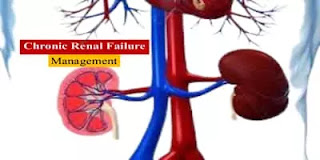Expert Homeopathy: Dr. Anutosh Chakraborty
Dietary therapy is the basis for the treatment of hemodialysis patients, because hemodialysis often leads to the loss of nutrients, so the diet of hemodialysis patients should be supplemented in accordance with the following requirements.
1. Control water intake
Excessive water intake can easily induce or aggravate edema, high blood pressure, and even heart failure, manifesting as shortness of breath and chest tightness. Therefore, the intake of water should be "measurable", and dialysis patients should control the daily weight gain of no more than 0.5 to 0.8 kg. If you are thirsty, add ice cubes, mints, or chewing gum to promote the secretion of saliva. Ban alcoholic beverages to avoid triggering gout. Fresh fruit juice has a higher potassium content. Generally, soft drinks often contain a certain amount of sodium, so pure water or mineral water is recommended.
2. Limit sodium and potassium intake
In order to prevent edema and hypertension, patients need to limit sodium intake to varying degrees. Most dialysis patients should limit their daily sodium intake to within 4-6 grams, and severely hypertensive patients need to strictly limit sodium intake. However, a long-term low-salt diet can affect the appetite of the patient and cause fatigue. Pay attention to provide a diverse and delicious diet according to the patient's eating habits. If the sodium in the patient's diet is well controlled, the water intake can be easily controlled. In uremia, the kidney's ability to excrete potassium is significantly reduced, and hyperkalemia often occurs, leading to arrhythmia and life-threatening. Potassium is commonly found in various foods, especially meat and beans, followed by rice and noodles, and fewer eggs. Vegetables, especially spinach and tomatoes, and oranges, melons, bananas, peaches, and grapefruits in fruits all contain high potassium. The daily potassium intake of dialysis patients should be limited to 2 to 3 grams. An effective way to prevent excessive intake of potassium, in addition to paying attention to food varieties, should be processed by boiling, and then abandon the soup and eat, because most of the potassium ions remain in the soup.
3. Increase the amount of protein supplement
Hemodialysis treatment often leads to the loss of amino acids and protein, so the dietary principles should be relaxed, and the daily protein intake should be increased to 1.0 to 1.2 g/kg. This nutritional standard is reasonable for hemodialysis patients who maintain a stable state, but it is not enough for alleviating malnutrition before dialysis and infection, heart disease, gastrointestinal tract, and other diseases after dialysis, and additional essential amino acids are needed. Nutrients. Such as fish, lean meat, milk, eggs, and other animal proteins that are rich in essential amino acids.
4. Limit cholesterol intake
Hemodialysis patients are often accompanied by hyperlipidemia. However, limit cholesterol should be selected, because many cholesterol-containing foods are also the main foods containing high-quality protein, such as meat and eggs. Patients can choose to eat egg whites, which not only ensures the intake of high-quality protein but also reduces the intake of cholesterol. The white meat of fish or poultry is better than the red meat, so choose carefully.
5. Calcium intake
Due to the lack of active vitamin D in dialysis patients and the body's resistance to active vitamin D, and the restriction of phosphorus intake in the diet, the blood calcium concentration is often low. Patients should be supplemented with adequate calcium and vitamin D under the condition of close monitoring of serum calcium and phosphorus levels.
Abnormal amino acid metabolism in patients with uremia, hyperphosphatemia is an important factor in causing renal bone disease and secondary hyperparathyroidism. Phosphorus is mainly found in dairy products, egg yolks, animal organs (heart and liver), shrimps, peanuts, nuts, soy products, and other foods. Pay attention to proper control; vegetable soup contains dissolved phosphorus, so it is better to drink less. In order to ensure protein intake, taking phosphorus binders on the basis of adequate dialysis is also an important method to prevent and treat hyperphosphatemia.
In addition, due to insufficient food intake, metabolic changes, and vitamin loss after dialysis, vitamin deficiency is caused. Therefore, attention should be paid to supplementing vitamin C, folic acid, vitamin B1, vitamin B6, vitamin A and so on.
Recommendations for diet:
Try to avoid eating beans and their products, and eat fewer nuts (such as walnuts, chestnuts, almonds, etc.) and preserved foods (such as pickles, pickles, etc.) in the southern food stores.
In order to increase the excretion of creatinine and urea nitrogen, it is necessary to make the bowel movement smooth. The stool should be better two or three times a day than once every two or three days.


Post a Comment